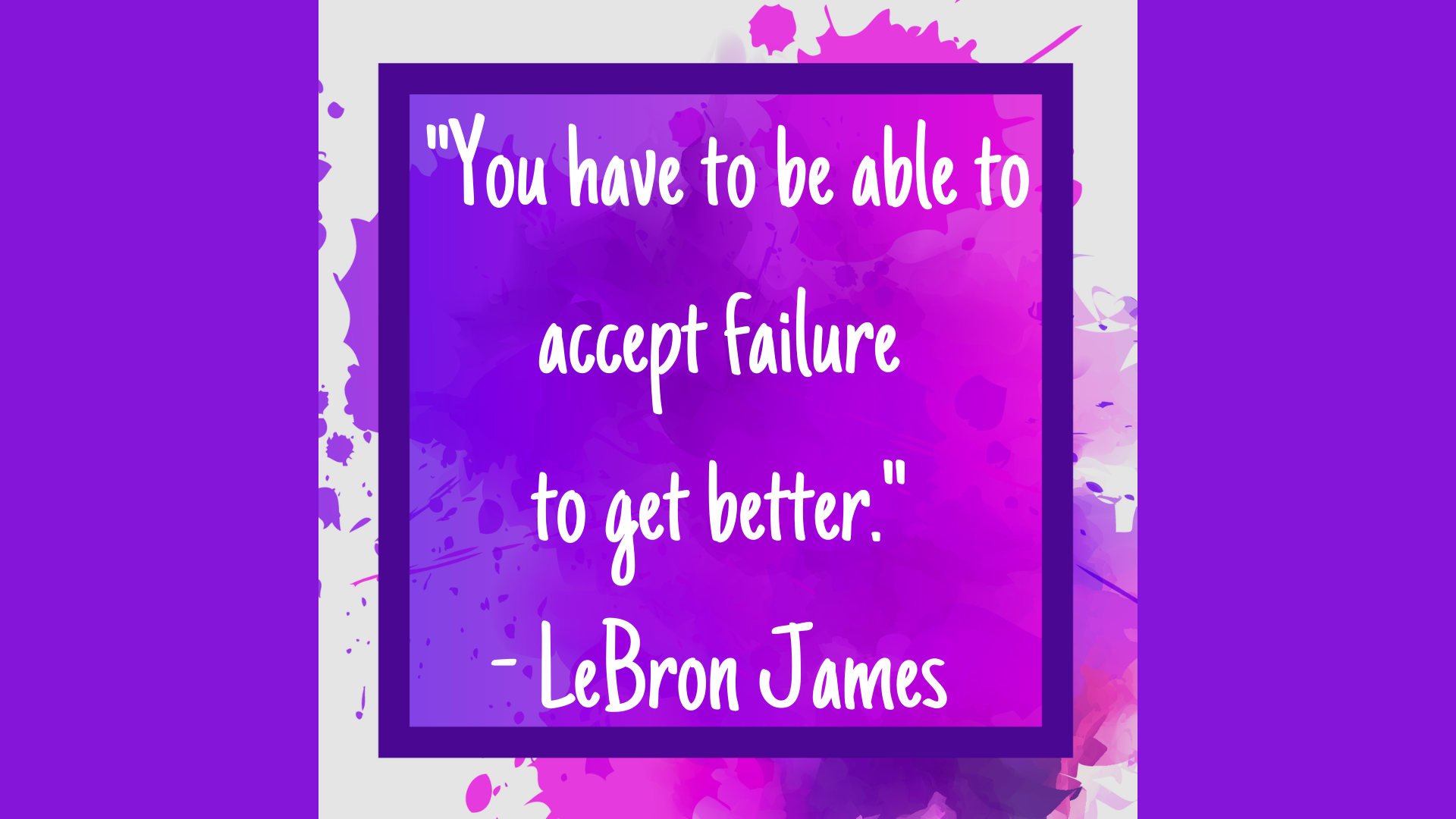Kay:
Hello Questers and welcome back. It’s Wednesday, September 22nd and this is episode 448. We have a quote from one of the greatest of all time, NBA superstar LeBron James and LeBron tells us, “You have to be able to accept failure to get better.”

Shi:
It’s such practical advice but it’s so freaking hard.
Kay:
It is so hard to accept it. Failing is a part of it.
Shi:
Oh gosh, if you’re like me, man when you fail you start beating yourself up. You start immediately dissecting what you could have done differently, how you could have done better, what responsibility you need to take in order to avoid those future mistakes. All of those are necessary components of accepting and then owning, taking radical responsibility of failure, so that you can do what LeBron tells us to do with failure, which is to get better. But it is a painful process that doesn’t get any easier.
Kay:
Well, trial and error are the only paths to figuring things out. That’s how they do it in science. That’s how they do it when you’re learning how to walk. That’s how biology works. That’s how evolution works, this kind of trial and error. We figure out what works and if we fail at it, it doesn’t. We try again and we work through it. But somewhere along the line in evolution, we decided to start equating this error piece with this idea of failure and then a bunch of pain gets put around it because there’s this emotional pressure that comes alongside failing when really all we’re engaging in is the lifelong age-old practice that’s built and baked into our biology of trial and error.
Shi:
Now, I’ve got to just qualify here that not all trials are created equal. It doesn’t mean it is the only way to learn and make progress, but you can be as informed as possible for a trial so that you can reduce the amount of error as much as possible and anticipate as much as you can. Going into a trial having not looked at anything in the industry or read any of the literature about or researched at all the prior findings means that you now have room for gigantic error versus coming in informed to your trial and allowing that failure, “the error” to be something small, something manageable and something that you can use to course correct and get better.
Kay:
So, we’re looking to reduce our rate of error and our rate of failure but still have to understand that when it comes into play it’s going to happen. So, doing your best to mitigate as much of the error as you can and sometimes that’s what you got to learn through just time and experience.
Shi:
And that emotional beating up that happens when we fail. Now, there can be a constructive failure where you see the failure, you can see objectively your role in it. You can also see objectively the role of other forces in your life, because yes, you are a co-creator of your life and use your frequencies and vibrations and the power of your thought and intention and attention to help co-create but no teacher or master throughout history or living today will tell you that you are THE creator because you are in concert with 7 billion other people and Mother Earth and the larger energies of whatever it is that you call spirit at play. So, you being the co-creator means that even if you do everything right, you can still fail.
Kay:
There can be times where a natural disaster comes and sweeps everything out from underneath you or a pandemic comes and completely changes your life. There can be times where you can’t predict what comes ahead because you are in this co-creation environment. However, I’m so glad Shi that you started today with this caveat. There are ways to make it easier along the path for yourself by doing your best to prepare and then like LeBron tells us in this quote, he gives us this word accept. You have to be able to accept failure. Now accepting it means that we’ve gotten to a point where the failure likely doesn’t quite cause us so much pain and we’re probably not fighting the fact that it’s happening anymore, which can cause a lot of additional pain and suffering in our lives. So, do everything you can to mitigate your rate of error and accept the fact that that error will exist.
Shi:
You hear a great like LeBron James giving a quote like this and it’s helpful I think because it reminds us that even someone like LeBron has had failure after failure after failure. That he’s missed a ton of shots. That he’s lost the game. That he’s had those nights and those injuries and those almost that would count as failures but that he accepts and that he encourages us to accept that that is part of the path. So, just to remind you what LeBron James tells us, “You have to be able to accept failure to get better.”
Kay:
Alright, guys, we’ve got a Wellness Wednesday Quest for you. So, it’s a little bit for your mental wellness. We want you to do a little bit of reflecting and face one failure in your life head-on today. Look at it, examine it and consider this. What has this failure taught you? What has this failure brought you and what can you do better next time in order to reduce your rate of error? Are you ready? Fail forward with us now.
Kay & Shi:
Let’s quest!




